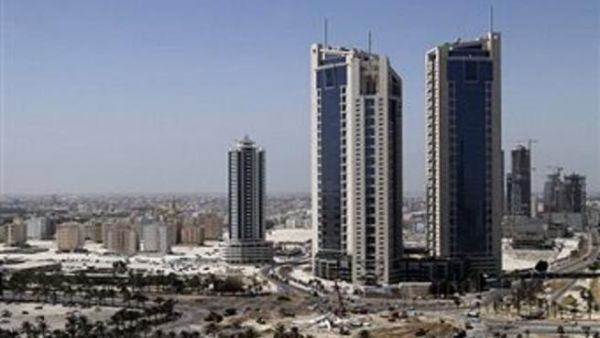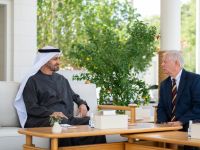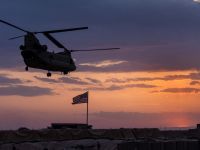The parks hope to trigger a new wave of foreign investment into the kingdom, bringing revenue and, crucially, jobs. In a country trying to diversify its economy, big things are expected of them. Yet as the upheaval of 2011 unfolded in the kingdom, popular talk centred more around lost opportunity - in the belief that potential suitors’ interest had cooled irreversibly - than inward investment. The reality was rather less dramatic, and for Bahrain’s new industrial zones - including the $1.6 billion Bahrain Investment Wharf - the largest mixed-use industrial development of its kind in the country - and the Bahrain International Investment Park (BIIP), which aims to attract high value, export-orientated projects - 2011 had some bright spots among the gloom.
Osama al Khajah, chief executive of Baytik Industrial Oasis (BIO), which leases advanced manufacturing units, says although 2011 was a difficult time to internationally market a project which had only been completed last September, several of the parties it had been courting prior to last year’s flare up had come back to the table to talk. “Many started engaging us again seriously in the fourth quarter of 2011,” he tells The Gulf. Shaikh Daij bin Salman al Khalifa, the chairman of Bahrain’s maritime regulator, which owns and operates Bahrain Logistics Zone (BLZ), a facility being developed near the kingdom’s largest and newest port, says international companies took a ‘wait and see’ approach last year, though for reasons not necessarily associated with the situation in the kingdom. “Though they fully realised the huge advantages of setting up their facility at the Zone, they were waiting for global economic conditions to improve. Things are, however, looking up again and we expect the Zone to be filled before the end of this year,” he explains. According to the United Nations Conference on Trade and Development (UNCTAD), Bahrain’s total inward stock of foreign investment stood at $12 billion in 2010, against about $1 billion in 1990. Twenty years on it hopes the industrial sector will account for a greater proportion of foreign direct investment (FDI) as the kingdom’s industrial base expands and evolves in nature.
At an investment forum in Manama last October, industry and commerce minister Dr Hassan Fakhro told delegates the kingdom’s long-term industrial vision was focused on high value-added industries and the creation of a knowledge-based economy. Bahrain’s new industrial zones broadly reflect this, and have already attracted significant FDI - according to BIIP, 71 percent of the $1.3 billion-worth of investments it has received to date are foreign-sourced. One such investor is German engineering giant Siemens, which last October opened a multi-million dollar regional engineering and maintenance services headquarters in BIO. Its facility opened just one month after the park, a wholly-owned subsidiary of Kuwait Finance House (KFH)–Bahrain, was completed. That such a big name should choose Bahrain ahead of rival sites which it had reportedly assessed elsewhere in the Middle East and North Africa speaks volumes about the kingdom’s enduring stability, according to al Khajah. Other foreign investors tend to agree. Last month another $40 million-worth of projects in BIIP were announced, including a $9 million advanced architectural products manufacturing facility for BFG Bahrain; a regional engineering services, repair and refurbishment centre at BIO for Germany’s SM Meer, and a $20 million jet aircraft engine maintenance, repair and overhaul facility for Bahrain-US joint venture Aerothrust Holdings Florida USA. However, turning an investment trickle into a steady flow will be more challenging, even though Bahrain’s credentials as an industrial investment hub - recent events notwithstanding – have changed little in recent times. Even though its ‘business friendly’ moniker has begun to wear thin, promotional collateral continues to identify the kingdom, located in the geographical centre of the Gulf, as the Middle East’s freest economy, its ‘light touch’ business regulation and free trade agreement with the US making it particularly attractive to foreign investors, who continue to explore potential on the tiny island.
According to al Khajah, three delegations from China visited his park last December alone. “In 2012 I see more industrial business development, in terms of foreign direct investment and joint ventures, from China,” he says. Keen to secure a slice of the estimated $2 trillion in investments China is expected to make overseas by 2020, the kingdom is already stepping up political and economic links with the Asian giant, and industry minister Dr Fakhro recently flew the flag during a visit to a Chinese company which is said to be planning a fiberglass factory in Bahrain. But while Bahrain’s fundamental strategic advantages appear sound, the government is aware it must raise its game in an increasingly competitive world, especially as other Gulf states manoeuvre into position. To an extent, the government has already demonstrated its intentions, spending $354 million on the Khalifa bin Salman Port, which opened in 2009, and upgrading road networks to facilitate smooth flow of goods and people. But another key trade conduit, the King Fahad Causeway, is beginning to show its age, with local business leaders and the chamber of commerce increasingly exasperated at heavy delays being experienced by Saudi-bound trucks. As the kingdom reinvents itself as a regional transhipment and logistics hub - KBSP’s raison d’etre – such bureaucratic hindrances are unacceptable, and a proposed $4.2 billion rail link running parallel to the existing road bridge, as well as a long-planned causeway to Qatar, cannot come soon enough.
The performance of Bahrain’s traditional export-orientated heavy industries is less sensitive to local issues. According to official statistics, manufacturing currently accounts for approximately 17 percent of national GDP, a figure which should rise as major expansions come online. Aluminium Bahrain (Alba), the world’s fourth largest aluminium smelter last month confirmed it would build a sixth production line, adding 400,000 tonnes per year (t/y) to its 881,000 t/y capacity by early 2015. The kingdom’s manufacturers are, however, at the mercy of global market dynamics. Alba fared well in this environment last year, reporting a net income of $564 million, which was 53 percent higher than 2010 as global aluminium consumption rose almost 10 percent, even though aluminium prices fell 13 percent in the year. “The global industrial sector has been under a lot of pressure in the last three years,” says Dr Adel Hamad, chief executive of Gulf Aluminium Rolling Mill Company (GARMCO), which buys aluminium raw material from Alba. “Industries have had to restructure to improve efficiencies and streamline performance. GARMCO is no exception. But we incurred no losses during the downturn, which suggests our systems are sound,” he notes. Going forward, Bahrain’s manufacturers will have to factor in the possibility of energy shortages which could thwart their expansion plans, and are looking to the government for answers. Alba admit clarifying pricing and long-term availability of gas is a top priority this year.
According to reports the country’s state-run energy supplier raised the price of gas it sells to Alba from 1 January by $0.75 per million British thermal units (mbtu) to $2.25/mbtu, increasing operating costs. As 2012 progresses, Bahrain’s next-generation industries are cautiously plotting their next moves. “If we take progress [with phase one] over the last few months as a barometer of progress for the entire project I hope by the end of 2012 we will have started putting firm plans in place for phase two,” says BIO’s al Khajah. He also hints the park’s ambitions could extend beyond Bahrain’s shores. “It is within BIO’s mandate to expand geographically, either within Bahrain or to share our expertise overseas,” he points out. BLZ, meanwhile, says while it currently has sufficient capacity to handle all business projections for the next three to five years, it is also prepared to invest if necessary. “We have earmarked additional land which is available for the future expansion of KBSP and BLZ,” a spokesman concludes.







